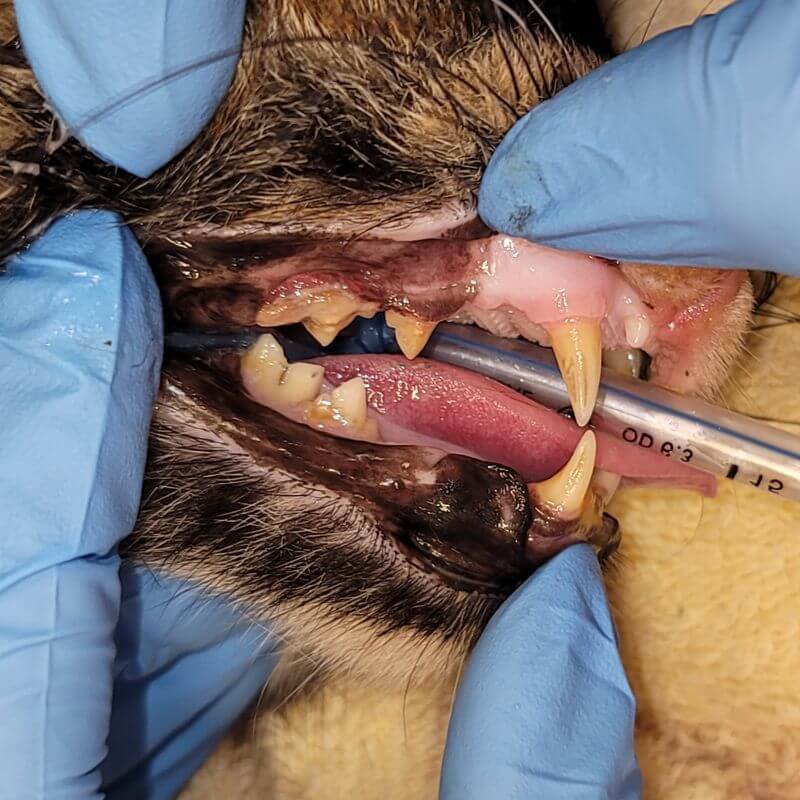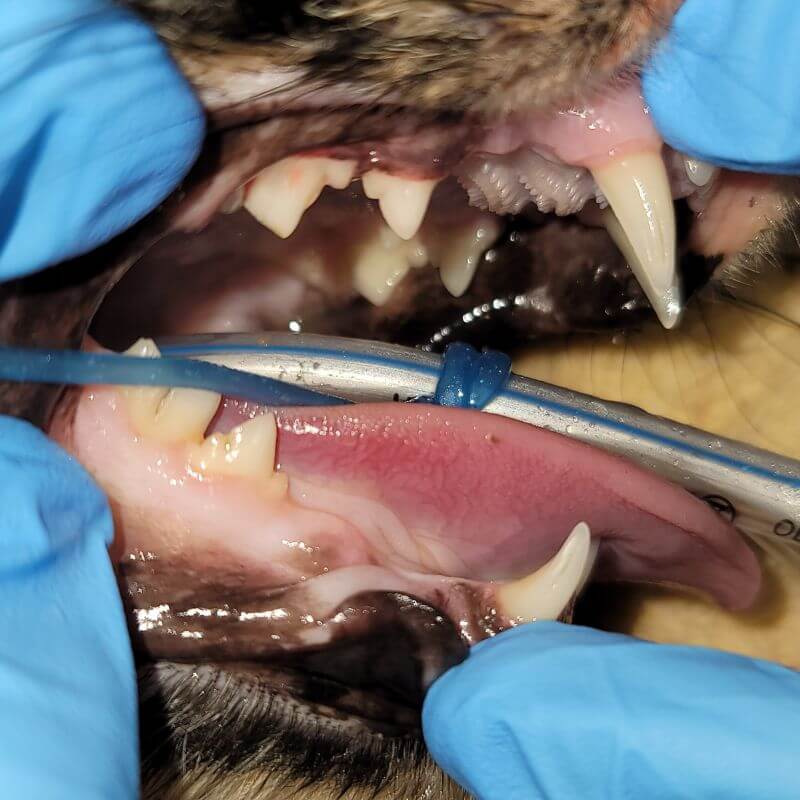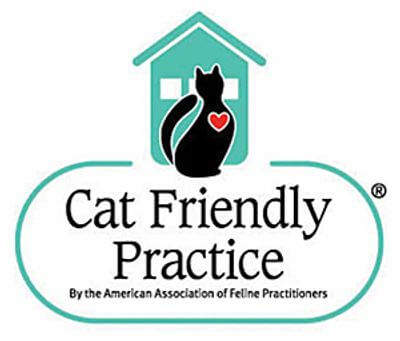What is involved in cat dental care?
One thing you could try to do is brush your cat's teeth. I would give any owner credit if they can accomplish that. That would involve a child-size toothbrush and special enzymatic cat-appropriate toothpaste that usually comes in flavors like seafood, chicken, and beef. Realistically, most owners cannot brush their cat's teeth, including me. So there are other alternatives, such as a dental diet where the kibble is a certain size, and when they crunch into it, it helps scrape the tarter off their teeth. Every year, during their annual exam, we always assess their teeth to see how their dental care is going.
Dr. Catherine MacLean
Sugar River Animal Hospital
How does dental health impact the overall health and wellbeing of my cat?
If you have a lot of bacteria in your mouth, which is the brown stuff that will show up, called tarter on the teeth, bacteria live in that, and that bacteria can go into the bloodstream and that can negatively affect other systems in the body. It can cause heart problems, kidney issues, and also liver problems for cats.
What types of dental care should I be giving my cat at home?
Again, if you can try brushing your cat's teeth, that would be awesome, but if that's not realistic, then I would recommend trying a dental diet. Sometimes there are wipes that you can wrap around your finger and brush and rub their teeth. That sometimes works better than brushing.
What are some signs and symptoms of issues with oral health in my cat?
You might notice them having difficulty chewing, or they may be dropping food. They might also have a really bad smell on their breath. Unfortunately, since they're not panting animals like dogs, we often don't smell the bad breath, and cats are notoriously good at hiding dental disease and all diseases in general. So they won't even eat kibble while they have teeth rotting in their mouth.
How do veterinarians diagnose dental problems in cats?
 |
 |
In a couple of different ways. The physical exam they get once a year is a primary way. Cats, believe it or not, have 30 teeth in their little mouths, and those teeth go all the way up to the sinus cavity and down in the jaw. We look for gingivitis, which is redding on the gums. We look for brown stuff or tarter on the teeth. Cats can also get a disease called resorptive lesions, where they get holes in their teeth, so we look for that, and also some cats will get stomatitis, which is when they're allergic to their own teeth, and their whole mouth gets inflamed.
What are some possible conditions caused by poor cat dental care, and what are the treatments?
The main thing is, if you don't take care of their teeth, they can sometimes lose them. So if we see a problem, whether it's just a lot of tar buildup, or if we see holes or a tooth that looks bad, we'll recommend a dental cleaning, which we do in this area. That involves general anesthesia. This is all set up differently for that. We take dental x-rays to see those 30 teeth and the roots, and if we find problems, we will call you during the procedure and discuss the appropriate action, which is usually oral surgery to remove those teeth.
If you still have other questions and you'd like to reach out to us, you can call us directly at (603) 865-5532, you can email us, or you can reach out on social media. But please do reach out, and we'll get back to you as fast as we can.


